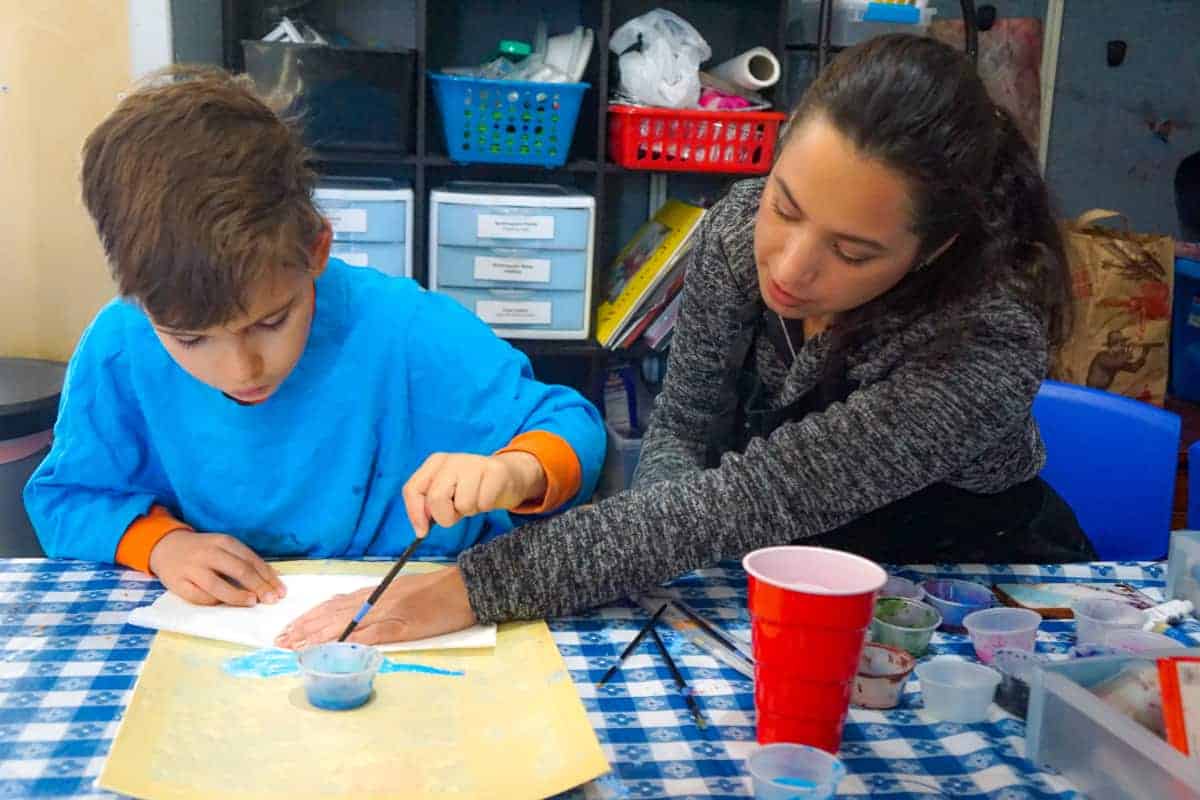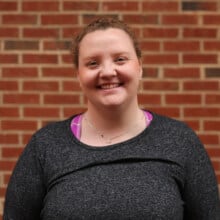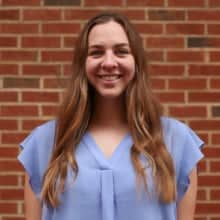Erin O’Loughlin watched her son, Marcus, who was diagnosed with severe autism at age 3, as he played and giggled with his service dog.
As O’Loughlin watched she chatted with his therapist, and soon they turned to a conversation she had thought about many times: the lack of resources for adults with autism.
“I half-jokingly made the comment about how I would love to purchase a big farm and provide an assisted living program for adults, as well as day programs for children with autism,” O’Loughlin said. “The rest is history.”
….
This idea became Camp Bluebird, a space for children with autism to learn, play, and form a community with similar struggles and successes, all nestled in a storefront in Holly Springs, North Carolina. There is no residential facility, animals, or even land yet, but O’Loughlin hopes that’s all coming in the future. For now, it’s enough that each child feels loved and accepted.
This unquestioning acceptance is seen everywhere at Camp Bluebird: in Mason, who loves to gently grab the instructors’ ears when they bend down for hugs. In the instructors’ patience with Julian, as they patiently urge him to give high fives instead of touching his friends’ stomachs. In their cheering for Connor, as he hits level 100 of his handheld Bop-It game. Every child has their unique needs, triggers and concerns, and each is handled with patience.
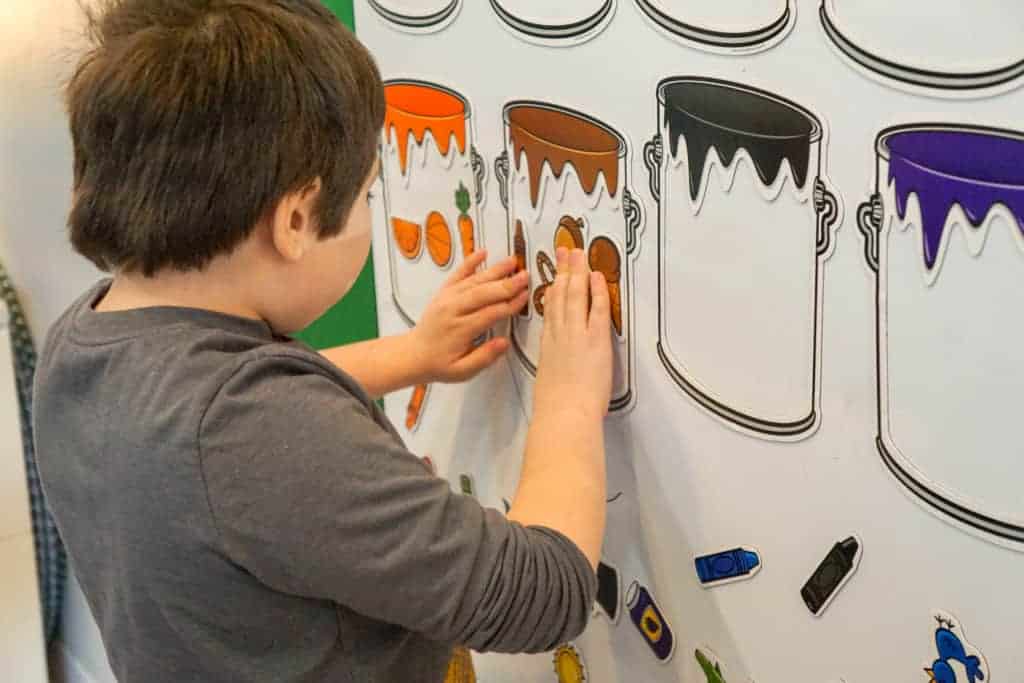
….
Autism spectrum disorder has a broad range of symptoms, but the most common include challenges around social skills, repetitive behaviors, and verbal communication.
Currently, approximately 1 in 59 children is diagnosed with autism, though studies are anticipating a spike in the coming years. It’s estimated that one-third of individuals with autism are nonverbal, and at the January session of Camp Bluebird only one of the eight students spoke, though all of them communicated with instructors through a variety of sounds and gestures.
While their current programming is limited to children and teens, O’Loughlin said resources for those with autism decline sharply as individuals grow into adulthood. Her ultimate goal is to provide opportunities for all ages.
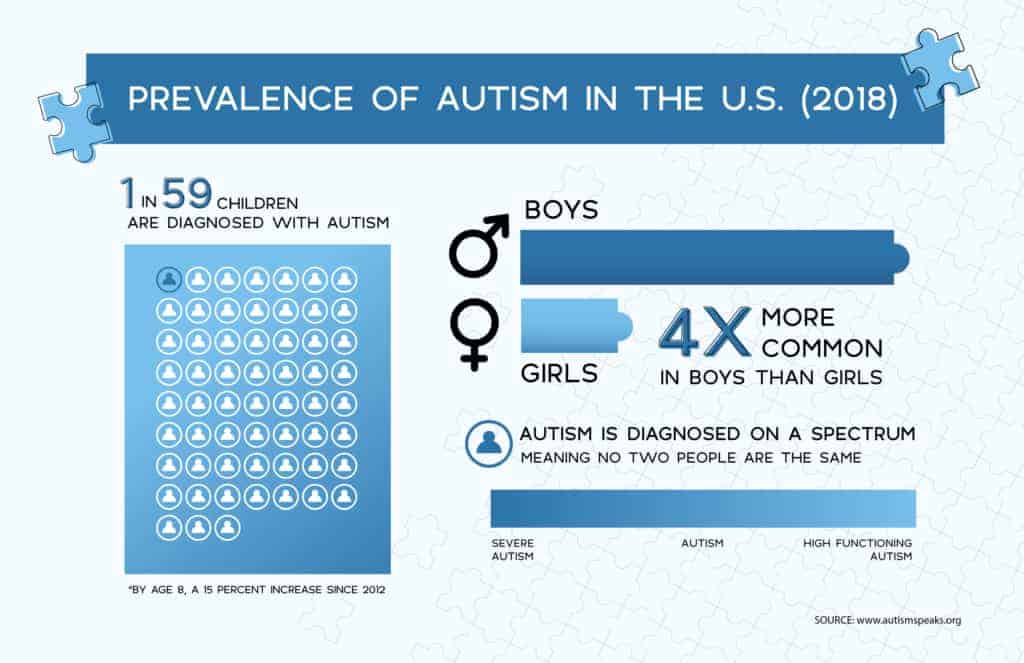
“So what happens to children after they become adults?” she asked. “It’s probably the most crucial issue we face.”
Now that her son is 14, concerns for Marcus’ adulthood have become even more relevant for O’Loughlin. She and her husband made the heart-wrenching decision to place Marcus in assisted living in July 2015 due to severe aggression. This journey, while painful, has made her even more determined to create a residential farm community. In the decade since his diagnosis, O’Loughlin said she and her husband have accepted that he will need lifelong care, and they hope 3 Bluebirds Farm can provide that care and resources for individuals with autism.
That’s where farms enter the picture. With a calm, interactive environment, room to learn, and residential spaces, farms for individuals with autism have become an increasingly intriguing and popular option, though they are still relatively rare, with only roughly 25 across the country, and two others in North Carolina.
O’Loughlin sees a need for adult autism services in the Triangle, and for her, the answer lies in creating spaces where those with special needs can exist freely while gaining needed skills, whether that’s a day camp or a residential program. Ideally, it will soon be both. Her plans are for 3 Bluebirds Farm to include a farmer’s market, an on-site store for participants to sell their goods, a coffee shop where they can work, and community-based agriculture projects.
“Instead of continuing to try and ‘fix’ these individuals and force them to live in a world of over-stimulation,” O’Loughlin said, “what if we were to offer them the accommodations they need so that they can just stay the way they are?”
….
Now, O’Loughlin has built a small team. Director of Programs Andrea Rasmussen is the only full-time staff member, but with O’Loughlin’s background in nonprofits and part-time teachers with experience in autism classrooms, O’Loughlin said they make it work.
Some schools in Wake County follow year-round school calendars, so students are in school for nine weeks and out for three. To work within this system, Camp Bluebird operates their camps during those three week periods, on what’s called a “track-out” program. In addition, they offer Take Flight Clubs for teens with intellectual or learning differences, helping them build social skills and a community.
Marie Boubane’s son, Liam, is 14, and was diagnosed with autism just two years ago. For their family, Camp Bluebird and the Take Flight Clubs provide not only a safe space for Liam to interact with others, but give Boubane time with her younger daughter.
Boubane said the diversity of children with autism introduces Liam to others who are different from him, but also reassures him that he is not alone.
“This is the world we live in,” she said. “You have the same diagnosis, but it doesn’t look the same on everyone.”
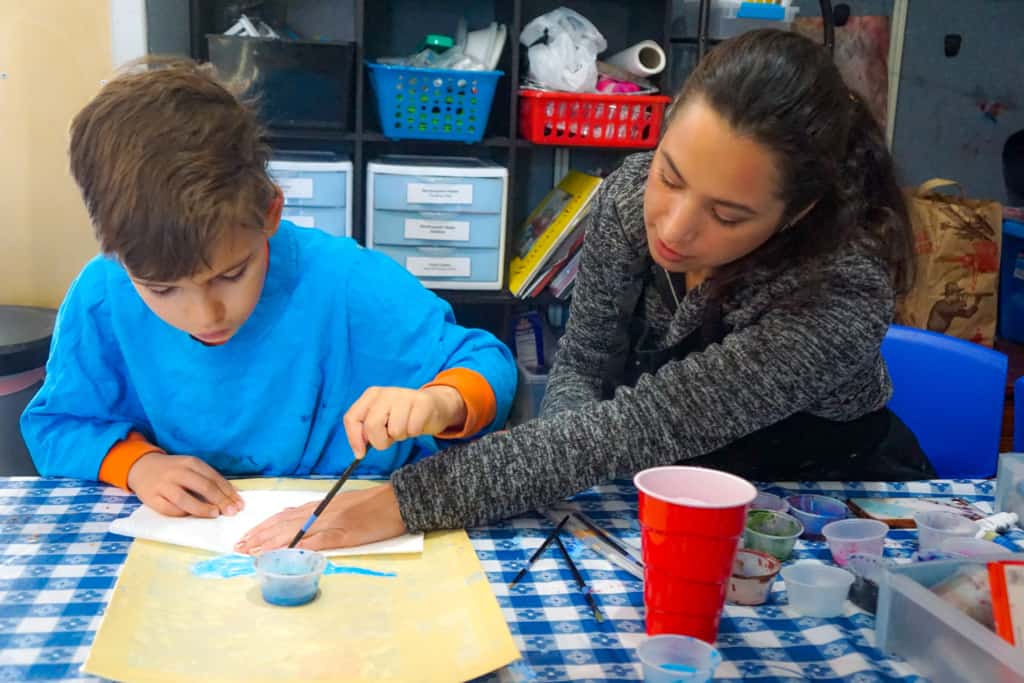
Camp Bluebird also appeals to her because it’s more affordable than most special needs camps, averaging $1,079 per three-week session. It’s still expensive, but she said their support and encouragement of Liam is worth the price tag, especially because with a 1:3 staff to camper ratio, Liam gets the supervision he needs.
Her hope is for Liam to lead a regular life and she added that Camp Bluebird has helped them work toward that goal. She wishes people were slower to judge when they interact with her son, but also acknowledges that everything is a learning opportunity.
“They’re just like everyone else,” she said. “They just see the world differently. Sometimes we should leave our world and go into theirs, just to see how different it is. Maybe we would like it better.”
….
Each day, the campers go through their morning routine: a good morning song, followed by an introduction of each student. On the last day of the January session, 13-year-old Cameron introduced himself first, dancing his way to the front of the room while everyone clapped and cheered.
Julian, one of the youngest students at just 5 years old, wandered over to Rasmussen and gave her a hug. She clearly adores each child and knows every detail about their particular needs. One of her favorite moments is whenever a parent notices that the skills their child learned at Camp Bluebird have carried over into their home life or at school.
“Sometimes we’ll have a parent ask ‘Did you do this yesterday?’ or ‘Did you work on that?’ We get so excited that they learned something and took it home,” she said.
One of Rasmussen’s many projects is working with the children on artwork to auction off at the Bluebird Ball, an annual fundraiser that raised $73,000 in 2018.
Over at the art table, she showed Daniel an example of a bluebird perched on a branch, and he painstakingly reproduced it by dabbing different shades of blue onto the canvas.
“I like your technique,” Rasmussen said, and Daniel gave her a toothy smile in return.
One student, Connor, worked with a game requiring him to identify colors and turn blocks a specific way until they fit into the provided box. Rasmussen said it’s a surprisingly difficult task, although he makes it look easy.
“After the kids left one day we tried to see how fast we could solve it,” she said, with a laugh. “It’s hard!”
….
Camp Bluebird’s mission is simple: to provide a space where children with autism can thrive, reach their fullest potentials, and be embraced as individuals. Learning from the students is key in this endeavor, O’Loughlin said.
“Each and every child has gifts to offer if we just take the time to look and learn,” she said. “We all work and play together, and learn from each other.”
She embraces each individual, and believes that’s crucial to establishing a safer, more accepting world for those with neurological differences.
“One in five people in our world have some type of disability,” she said. “Perhaps it’s time to start re-thinking what ‘normal’ is, and start celebrating neurodiversity.”
